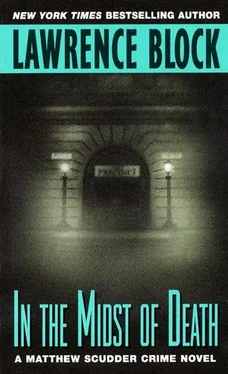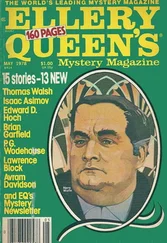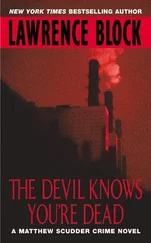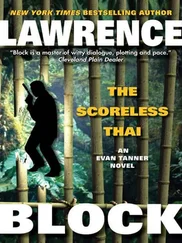Lawrence Block - In the Midst of Death
Здесь есть возможность читать онлайн «Lawrence Block - In the Midst of Death» весь текст электронной книги совершенно бесплатно (целиком полную версию без сокращений). В некоторых случаях можно слушать аудио, скачать через торрент в формате fb2 и присутствует краткое содержание. Год выпуска: 2002, ISBN: 2002, Издательство: Avon, Жанр: Детектив, на английском языке. Описание произведения, (предисловие) а так же отзывы посетителей доступны на портале библиотеки ЛибКат.
- Название:In the Midst of Death
- Автор:
- Издательство:Avon
- Жанр:
- Год:2002
- ISBN:9780380763627
- Рейтинг книги:4 / 5. Голосов: 1
-
Избранное:Добавить в избранное
- Отзывы:
-
Ваша оценка:
- 80
- 1
- 2
- 3
- 4
- 5
In the Midst of Death: краткое содержание, описание и аннотация
Предлагаем к чтению аннотацию, описание, краткое содержание или предисловие (зависит от того, что написал сам автор книги «In the Midst of Death»). Если вы не нашли необходимую информацию о книге — напишите в комментариях, мы постараемся отыскать её.
In the Midst of Death — читать онлайн бесплатно полную книгу (весь текст) целиком
Ниже представлен текст книги, разбитый по страницам. Система сохранения места последней прочитанной страницы, позволяет с удобством читать онлайн бесплатно книгу «In the Midst of Death», без необходимости каждый раз заново искать на чём Вы остановились. Поставьте закладку, и сможете в любой момент перейти на страницу, на которой закончили чтение.
Интервал:
Закладка:
"Not entirely, Claude." I drew a breath. "You shouldn't have killed her. There was no point to it.
Hardesty already knew about you. If he'd thrown your name into the open at the beginning, a lot of time would have been saved and Fuhrmann and Manch would still be alive. But—"
"Manch?"
"Leon Manch. It looked as though he might have killed Fuhrmann, but the timing was wrong. And then it looked as though you might have set it up, but you would have done it better. You would have killed them in the right order, wouldn't you? First Fuhrmann and then Manch, and not the other way around."
"I don't know what you're talking about."
And this time he evidently didn't, and the difference in his tone was obvious. "Leon Manch was another name on Portia's client list. He was also Knox Hardesty's pipeline into the mayor's office. I called him yesterday afternoon and arranged to see him, and I guess he couldn't handle it. He jumped out a window last night."
"He actually killed himself."
"It looks that way."
"He could have killed Portia Carr." He said it not argumentatively but thoughtfully.
I nodded. "He could have killed her, yes. But he couldn't have killed Fuhrmann because Fuhrmann made a couple of telephone calls after Manch had been officially pronounced dead. You see what that means, Claude?"
"What?"
"All you had to do was leave that little writer alone. You couldn't know it, but that was all you had to do. Manch left a note. He didn't confess to murder, but it could have been interpreted that way. I would certainly have interpreted it that way and I would have done everything possible to pin the Carr murder on Manch's dead body. If I managed it, Broadfield was clear. If not, he would stand trial himself. Either way, you would have been home free because I would have settled on Manch as the killer and the cops had already settled on Broadfield and that left nobody in the world hunting for you."
He said nothing for a long time. Then he narrowed his eyes and said, "You're trying to trap me."
"You're already trapped."
"She was an evil, filthy woman."
"And you were the Lord's avenging angel."
"No. Nothing of the sort. You are trying to trap me, and it won't work. You can't prove a thing."
"I don't have to."
"Oh?"
"I want you to come over to the police station with me, Claude. I want you to confess to the murders of Portia Carr and Douglas Fuhrmann"
"You must be insane."
"No."
"Then you must think I'm insane. Why on earth would I do something like that? Even if I did commit murder—"
"To spare yourself, Claude."
"I don't understand."
I looked at my watch. It was still early, and I felt as though I'd been awake for months.
"You said I can't prove anything," I told him. "And I said you were right. But the police can prove it. Not now, but after they've spent some time digging. Knox Hardesty can establish that you were a client of Portia Carr's. He gave me the information once I was able to show him how it was bound up in murder, and he'll hardly hold it back in court. And you can bet that somebody saw you with Portia in the Village and somebody saw you on Ninth Avenue when you killed Fuhrmann. There's always a witness, and when the police and the district attorney's office are both putting in time, the witnesses tend to turn up."
"Then let them turn up these people if they exist. Why should I confess to make things easier for them?"
"Because you'd be making things easier for yourself, Claude. So much easier."
"That doesn't make sense."
"If the police dig, they'll get everything, Claude. They'll find out why you were seeing Portia Carr. Right now nobody knows. Hardesty doesn't know, I don't know, no one does. But if they dig, they'll find out. And there will be insinuations in the newspapers, and people will suspect things, perhaps they'll suspect worse than the truth—"
"Stop it."
"Everyone will know about it, Claude." I inclined my head toward the closed door. "Everyone," I said.
"Damn you."
"You could spare her that knowledge, Claude. Of course a confession might also get you a lighter sentence. It theoretically can't happen in Murder One, but you know how the game is played. It certainly wouldn't hurt your chances. But I think that's a secondary consideration as far as you're concerned, Claude. Isn't it? I think you'd like to save yourself some scandal. Am I right?"
He opened his mouth but closed it without speaking.
"You could keep your motive a secret, Claude. You could invent something. Or just refuse to explain. No one would pressure you, not if you'd already confessed to homicide. People close to you would know you had committed murder, but they wouldn't have to know other things about your life."
He lifted his cup of chocolate to his lips. He sipped it, returned it to its saucer.
"Claude—"
"Just let me think for a moment, will you?"
"All right."
I don't know how long we remained like that, me standing, him seated before the silent television set. Say five minutes. Then he sighed, scuffed off his slippers, reached to put on a pair of shoes. He tied them and got to his feet. I walked to the door and opened it and stood aside so he could precede me through it into the living room.
He said, "Mother, I'll be going out for a little while. Mr. Scudder needs my help. Something important has come up."
"Oh, but your dinner, Claude. It's almost ready. Perhaps your friend would care to join us?"
I said, "I'm afraid not, Mrs. Lorbeer."
"There's just no time, Mother," Claude agreed. "I'll have to have dinner out."
"Well, if it can't be helped."
He squared his shoulders, went to the front closet for a coat. "Now wear your heavy overcoat," she told him. "It's turned quite cold outside. It is cold out, isn't it, Mr. Scudder?"
"Yes," I said. "It's very cold out."
Chapter 16
My second trip to the Tombs was very different from my first. It was about the same hour of the day, around eleven in the morning, but this time I'd had a good, full night's sleep and very little to drink the night before. I'd seen him in a cell the first time. Now I was meeting him and his lawyer at the front desk. He had left all that tension and depression in his cell and he looked like the conquering hero.
He and Seldon Wolk were already on hand when I walked in. Broadfield's face lit up at the sight of me. "There's my man," he called out. "Matt, baby, you're the greatest. Absolutely the greatest. If I did one intelligent thing in my life, it was getting hooked up with you." And he was pumping my hand and beaming down at me. "Didn't I tell you I was getting out of this toilet? And didn't you turn out to be the guy to spring me?" He inclined his head conspiratorially, lowered his voice to a near-whisper. "And I'm a guy knows how to say thank you so you know I mean it. You got a bonus coming, buddy."
"You paid me enough."
"The hell I did. What's a man's life worth?"
I had asked myself the same question often enough, but not in quite the same way. I said, "I made something like five hundred dollars a day. That'll do me, Broadfield."
"Jerry."
"Sure."
"And I say you got a bonus coming. You met my lawyer? Seldon Wolk?"
"We've spoken," I said. Wolk and I shook hands and made polite sounds at each other.
"Well, it's about that time," Broadfield said. "I guess any reporters who're gonna show up are already waiting out there, don't you think? If any of 'em miss out, it'll teach 'emto be on time next shot. Is Diana out there with the car?"
"She's waiting where you wanted her to wait," the lawyer told him.
"Perfect. You met my wife, didn't you, Matt? Of course you did, I gave you that note to take out there. What we gotta do, you get a woman, and the four of us'll have dinner one of these nights. We ought to get to know each other better, all of us."
Читать дальшеИнтервал:
Закладка:
Похожие книги на «In the Midst of Death»
Представляем Вашему вниманию похожие книги на «In the Midst of Death» списком для выбора. Мы отобрали схожую по названию и смыслу литературу в надежде предоставить читателям больше вариантов отыскать новые, интересные, ещё непрочитанные произведения.
Обсуждение, отзывы о книге «In the Midst of Death» и просто собственные мнения читателей. Оставьте ваши комментарии, напишите, что Вы думаете о произведении, его смысле или главных героях. Укажите что конкретно понравилось, а что нет, и почему Вы так считаете.












